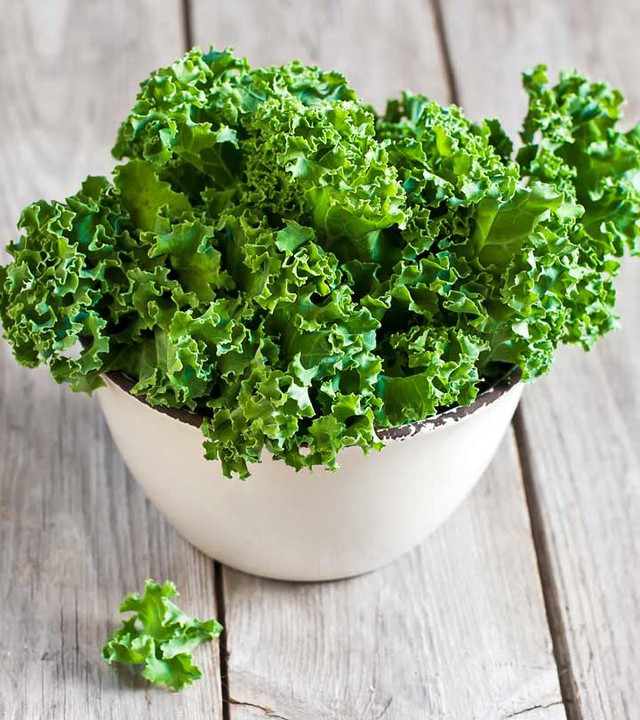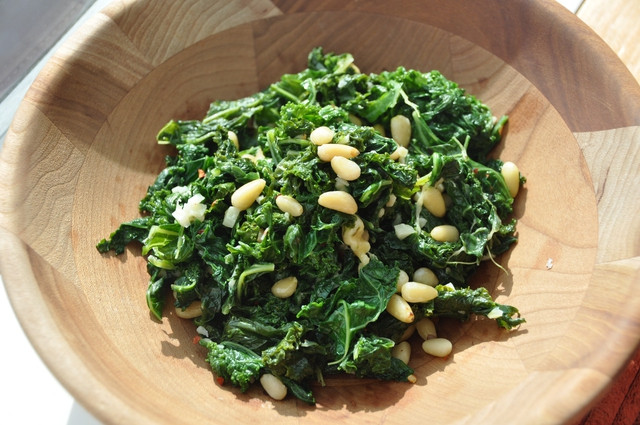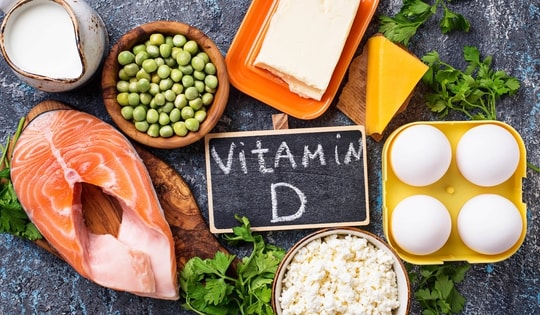Top 7 Health Benefits of Kale
Kale has been at the center of a nutrition craze for the past few years. That's because this superfood is simply a fantastic, nutrient-packed powerhouse.
1. Nutritional value of kale
Kale is a cruciferous vegetable, like cabbage, broccoli, and cauliflower, that has large, edible leaves with a tough central stem. Kale comes in a variety of colors, most commonly dark green, but there are also purple varieties. The edges of the leaves are flat or curly.
An 80g serving of raw kale contains:
26 kcal / 112 kJ 2.7g protein 1.3g fat 1.1g carbohydrate 3.3g fiber 360mg potassium 104mg calcium 1.36mg iron 96mcg folate 88mg vitamin C
2. Top health benefits of kale boost immunity
Kale contains four times more vitamin C and twice the selenium than spinach, as well as nutrients like vitamin E, vitamin K, and beta-carotene, all of which are important for supporting a healthy immune system.

Kale supports bone health
Kale is rich in minerals that our modern diets lack. It is a good plant-based source of calcium, which is essential for strong bones and teeth, and is naturally low in compounds called oxalates, which make calcium more easily absorbed. Kale is also a good source of vitamin D, which studies show supports healthy bone metabolism.
Protection against heart disease
Kale contains several nutrients that support heart health, including potassium, which helps maintain healthy blood pressure. Regular kale consumption can help prevent heart disease and lower blood pressure.
Another benefit of kale is that it contains substances that bind to cholesterol to help control LDL and HDL levels. In fact, this particular ingredient is believed to reduce the buildup of cholesterol in the arteries. Studies show that even if you juice or steam kale, you will still benefit from these benefits.
Kale is rich in nutrients that support eye health.
The high levels of vitamin A found in kale help improve and maintain eye and skin health. Like carrots, kale plays a big role in eye health. Vitamin A is also known to prevent many types of cancer.
Kale is rich in two phytonutrients, lutein and zeaxanthin, which support eye health and improve vision. Adequate intake of these nutrients may reduce the risk of age-related macular degeneration and cataracts.
Rich source of antioxidants
Kale is actually loaded with antioxidants, primarily flavonoids, polyphenols, but also beta carotene and vitamin C. Antioxidants help regulate oxidation in the body and have been shown to prevent many chronic diseases and even cancer.
Contains omega-3 which is a well-known anti-inflammatory
Kale also contains omega-3 fatty acids, which help reduce inflammation in the body. This will help reduce the symptoms of arthritis or just joint pain. Omega-3s are also known to help fight heart disease. Omega-3s are also thought to play a role in preventing hair loss.

Helps detoxify the body
Studies have also shown that eating kale daily helps the body eliminate dangerous toxins. Simply put, kale contains a molecule that helps regulate the detoxification process from within the body’s cells. This process further aids digestion while protecting the stomach lining from the overgrowth of harmful bacteria.
3. Is kale safe for everyone?
Because kale is a rich source of vitamin K, people who are taking anticoagulant medications (often called blood thinners) should consider their intake. Generally, the advice when taking these medications is to try to maintain a healthy diet. It is always advisable to consult your doctor before making any significant changes to your diet.
Some people with thyroid problems or those taking thyroid medication should be careful when consuming cruciferous vegetables such as kale. This is because they affect the thyroid's ability to absorb iodine.
4. Suggestions for 2 unique and healthy kale recipes
Baked Kale and Cheese Omelette
Beat 2 eggs, 1 piece of soft cheese and a few thinly sliced onions. Pour the mixture into a non-stick pan. Cook for 3-5 minutes over medium heat. While the eggs are cooking, preheat the oven to 200 degrees. Chop some kale and sprinkle it over the egg mixture, then sprinkle some grated mozzarella on top. Bake for 8-12 minutes at 200 degrees or until the kale is crisp and enjoy.
Quick and easy stir-fried kale with roasted pine nuts

Heat 3 tablespoons olive oil in a large skillet over medium heat. Add 2 minced garlic cloves and chopped onion. Sauté for 4-5 minutes. Add 3-4 chopped kale stalks and 1/2 cup toasted pine nuts. Sauté for another 4-6 minutes, the kale will be bright green and delicious.



